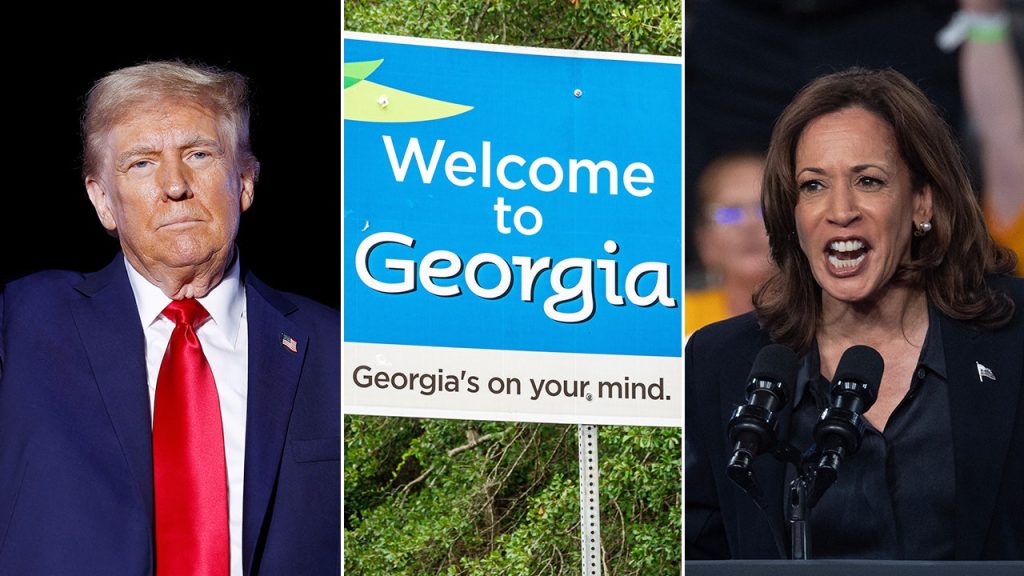A Georgia judge recently struck down several rules passed by the State Elections Board (SEB) that had been a topic of heated debate between supporters of former President Trump and Vice President Kamala Harris in the battleground state. Fulton County Superior Court Judge Thomas A. Cox deemed the new provisions “illegal, unconstitutional and void.” The ruling came after he considered two lawsuits challenging the rules, one filed by the Georgia Democratic Party and a second by civil rights groups that included current and former GOP state officials. One of the measures required all ballots to be hand-counted by three county election officials after being machine-tabulated to ensure accuracy, a rule that was temporarily blocked by a separate ruling the night before Cox’s decision.
Cox’s ruling not only invalidated the hand-counting provision but also struck down a rule mandating a “reasonable inquiry” before certifying election results for county officials and granting them access to all election-related documentation. Additionally, Cox blocked new signature and photo ID requirements for those dropping off absentee ballots for others. These rules were passed in a 3-2 vote by the Republican majority on the elections board, with Democrats claiming they were meant to sow doubt and chaos in the election process, while supporters argued they were necessary guardrails for ensuring voter confidence. The wider-ranging case, led by Eternal Vigilance Action, challenged the SEB’s authority in establishing new rules, with the plaintiffs arguing that the board had overstepped its boundaries set by the General Assembly.
Former President Trump and Vice President Harris’ campaigns have both invested significant time and resources in Georgia, a key battleground state that President Biden won by a slim margin in 2020. Harris’ campaign praised Tuesday’s ruling that blocked the hand-counting ballots rule, stating that “Our democracy is stronger thanks to this decision.” Both campaigns were reached out to for comment on the ruling, but details on their responses were not provided. The lawsuits and subsequent rulings highlight the ongoing political tensions surrounding election rules and regulations, with both sides of the political spectrum advocating for their preferred approaches.
The legal battle over Georgia’s election rules has pitted Democrats against Republicans, with both sides arguing over the constitutionality and necessity of the measures passed by the SEB. The Republican majority on the elections board had introduced the rules, prompting accusations from Democrats of attempts to undermine the election process. Supporters of the rules claimed they were essential for ensuring voter confidence and preventing potential fraud. The lawsuits challenging the rules raised questions about the SEB’s authority to create such regulations and whether they were within the scope of the General Assembly’s grant of authority.
The ruling by Judge Cox invalidated several controversial provisions of the new election rules, including the requirement for hand-counting ballots and the additional scrutiny before certifying election results. The decision also struck down signature and photo ID requirements for absentee ballot drop-offs, addressing key concerns raised by opponents of the rules. The legal battle underscores the importance of clear and transparent election procedures, as well as the role of the judiciary in upholding the rule of law. With Georgia being a highly contested state in recent elections, the outcome of these legal challenges could impact future voting regulations and political strategies in the state.
Former GOP state legislator Scot Turner’s group, Eternal Vigilance Action, was at the forefront of one of the lawsuits challenging the SEB’s rules, arguing that the board had overreached in its authority. The defendants and supporting groups, including attorneys for the Georgia Republican Party, countered that the SEB was acting within its mandate granted by the General Assembly. The legal arguments presented in the cases highlight the ongoing debate over the balance of power between government branches and the interpretation of legislative authority. The rulings by Judge Cox and the implications for future election procedures will likely continue to be scrutinized by both political parties and advocacy groups as they navigate the complexities of election law and governance in Georgia.


